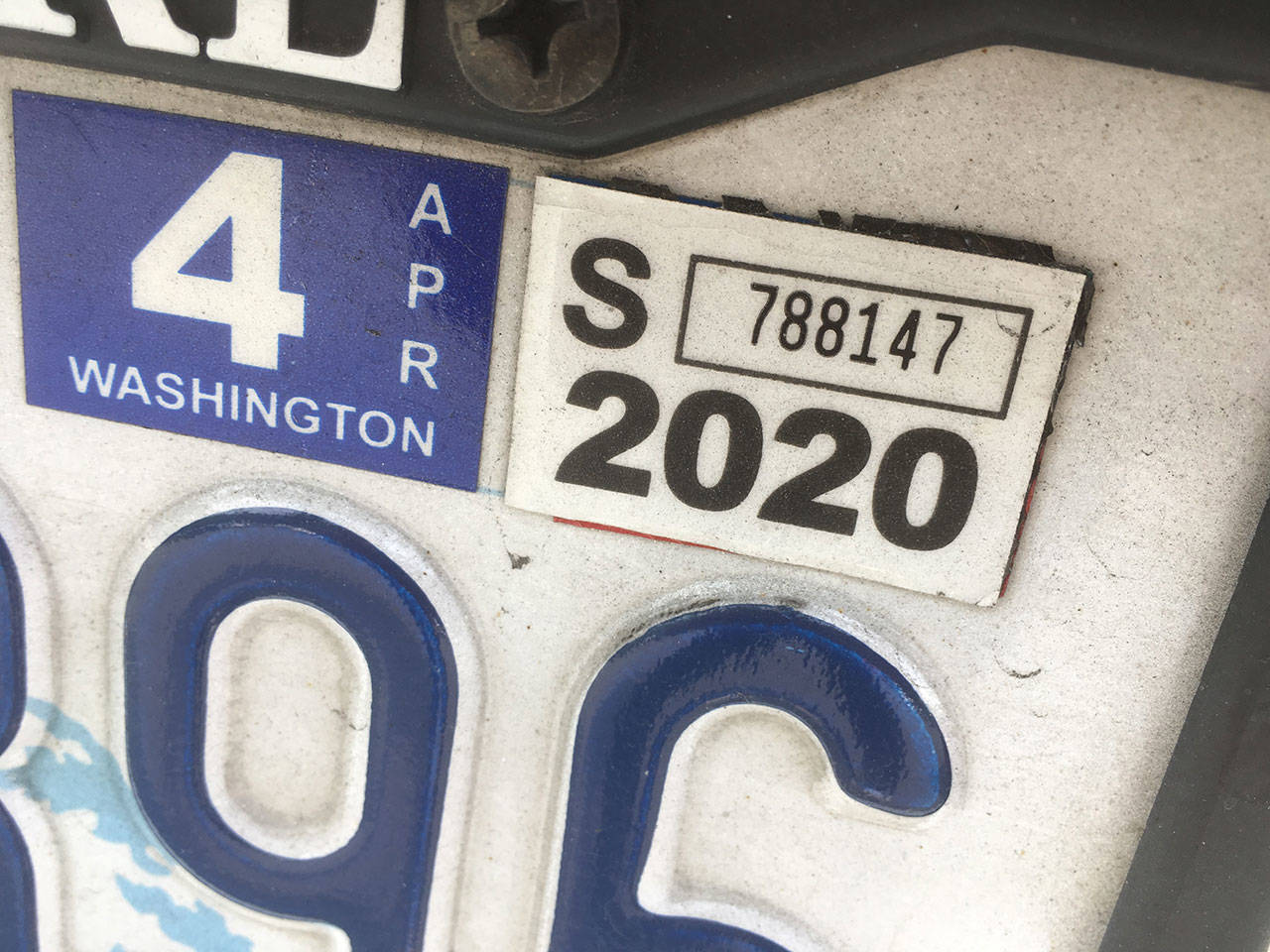OLYMPIA — Attorney General Bob Ferguson is asking the state Supreme Court to set aside a lower court ruling preventing a reduction in car tab costs from taking effect Thursday, as voters wanted.
In an emergency motion filed late Monday, the attorney general contends that a preliminary injunction against Initiative 976, issued by a King County Superior Court judge, is “legally flawed” and “overrides the will” of voters.
“The only way to protect the voters’ will is for this court to stay the injunction so that I-976 can take effect as our constitution specifies,” Deputy Solicitor General Alan Copsey wrote in the motion. “Failure to do so would frustrate the will of the voters without justification and force hundreds of thousands of Washingtonians to pay vehicle taxes and fees higher than they should now owe.”
Late Tuesday, attorneys who secured the injunction on behalf of a coalition of cities, counties and transit agencies challenging the measure’s legality, urged the justices to reject the state’s request.
“The trial court did not abuse its discretion,” they wrote in a legal filing. “The State seems to argue the novel and far-reaching proposition that there is some right for voters who supported a ballot measure to have even an unconstitutional initiative implemented until there is a hearing on the merits. No case supports that proposition. It is wrong and should be rejected.”
Meanwhile Tuesday, an Everett attorney undertook a different legal path and asked the Supreme Court to vacate the injunction and directly handle the case itself.
Flanked by initiative sponsor Tim Eyman outside the Temple of Justice, attorney Stephen Pidgeon filed a petition for writ of mandamus in which he argued all judges in King County Superior Court should be disqualified from hearing the case because the county is among the parties contesting the measure’s legality.
“If a preliminary injunction is to be entered, or this initiative is to be unconstitutional, let the decision be made by an impartial tribunal,” he wrote in his legal filing. Pidgeon represents Clint Didier, a Franklin County commissioner, and four other Eastern Washington residents.
Initiative 976 passed with 53% support in the Nov. 5 election.
It caps the annual registration fees for most passenger vehicles at $30 and axes license fees levied by transportation benefit districts that exist in Everett, Lynnwood and 60 other cities. It also slashes the motor vehicle excise tax collected by Sound Transit, which is used to fund planned light rail expansion.
Barring the injunction, most of its elements were to go into effect Dec. 5.
Opponents’ attorneys, in arguing for the injunction, cited “substantial concerns” that the initiative’s description on the ballot was misleading and it violated the single-subject rule provisions for initiatives laid out in the state constitution. And they contended the immediate loss of revenue would substantially harm road maintenance and transit services.
Plaintiffs include the city of Seattle; King County; the Washington State Transit Association, whose members include Sound Transit and Community Transit; and the Association of Washington Cities, which includes many Snohomish County cities.
On Nov. 27, King County Superior Court Judge Marshall Ferguson issued a preliminary injunction. In it, he acknowledged the potential issue of the ballot title language being misleading. The judge emphasized that he had not reached a final determination that the measure is unconstitutional, and he said it was not a foregone conclusion that he would strike it down — only that the challengers had made enough of a case to stop its implementation while the legal case proceeds.
The state and cities will continue to collect the vehicle taxes and fees — unless the Supreme Court intercedes — and provide refunds later if the initiative is upheld.
Copsey, in the emergency motion, argued the ballot title adequately described the initiative and “put voters on notice of I-976’s subject, and would prompt inquiring minds to read the initiative for more detail.”
He pointed out that there are “significant public costs from the injunction.”
State Department of Licensing employees have spent hundreds of hours preparing to implement the measure. But if they have to provide refunds, he wrote, it would require at least 45,000 business hours to issue refunds for each month the injunction is in place, requiring an additional 41.5 full-time employees.
“These significant and avoidable public expenditures also favor staying the trial court’s preliminary injunction,” he wrote.
Plaintiffs countered if the injunction is lifted and initiative later deemed unconstitutional, the public agencies will wind up losing out on tens of millions of dollars in revenue collections.
Attorneys also reasserted their arguments made in court last week that the ballot title deceived and misled voters. And they reiterated that the measure deals with multiple subjects in violation of a constitutional provision requiring initiatives tackle only one subject.
“Even with the misleading, logrolling, and confusing I-976 ballot title, 47% of voters rejected the initiative,” they wrote. “All Washingtonians have the right to demand compliance with our constitution, regardless of the vote count.”
Jerry Cornfield: 360-352-8623; jcornfield@herald net.com. Twitter: @dospueblos
Talk to us
> Give us your news tips.
> Send us a letter to the editor.
> More Herald contact information.

























